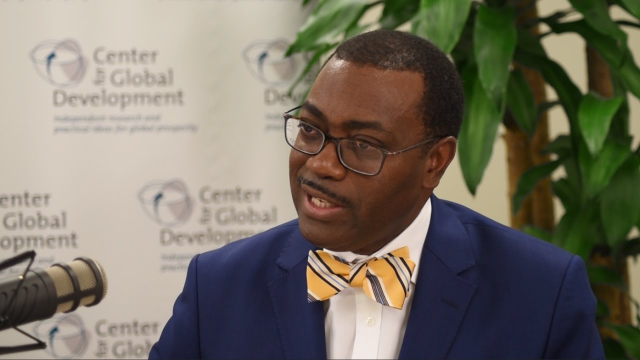Africa must use all its comparative advantages to mobilise the resources it needs to finance its sustainable development ambitions.

The African Development Bank (AfDB) Group made the call in a statement on its website on Tuesday, April 25, 2023.
The statement reported the Organisation for Economic Co-operation and Development (OECD) as saying that since 2010, Africa’s official development assistance declined to its lowest level of $34 billion in 2022.
It said the continent’s access to international capital markets remained constrained and costly due to investors’ perceptions of high risk.
However, it said the continent was not short of options as it could draw immense potential of natural capital, including fresh water, forests and extensive mineral deposits to attract investment and accelerate economic growth.
“This is what the Annual Meetings of the AfDB scheduled to take place from May 22 to 26 in Sharm El Sheikh, Egypt, intend to demonstrate,’’ it stated.
According to the statement, about 30 per cent of global mineral reserves is in Africa, including 60 per cent of world cobalt reserves and 90 per cent of platinum-group metals.
It further said the continent contributed substantially to the world’s annual production of six key minerals.
“This includes 80 per cent of platinum, 77 per cent of cobalt, 51 per cent of manganese, 46 per cent of diamonds, 39 per cent of chromium and 22 per cent of gold.
“Africa holds seven per cent of the world’s natural gas and oil reserves, has more than 60 per cent of undeveloped arable land, and is home to 13 per cent of the world’s population.
“Sixty per cent of its people are under 25 years of age, the youngest population in the world.
“About 75 per cent of African countries have maritime access, offering significant opportunities in the blue economy, which has a global potential of an estimated 1.5 trillion dollars if sustainably managed,’’ it said.
The statement said hundreds of internationally listed junior mining companies over the years had mobilised considerable capital by promoting the value of their exploration or extraction licenses for African deposits on markets.
According to the statement, governments have often failed to harness this natural potential to mobilise resources.
It further explained that hundreds of millions of people exploited natural capital in an ad hoc manner; for instance, in the charcoal industry, which relied on an economic model of deforestation.
However, it said some countries were effectively taking advantage of natural capital. Morocco, for example, had established huge solar and wind energy plants.
“In 2022, British renewable energy company Xlinks announced the construction of a 3800-kilometre submarine cable to allow the UK to take advantage of this energy.
“Egypt harnesses the Nile River and the Suez Canal in various ways.
“The country also has the Benban solar photovoltaic power plant, inaugurated in 2018, contributing to increasing the renewable energy output to 42 per cent of the total by 2035.
“Benban is expected to reduce carbon dioxide emissions by two million tonnes annually.
“When running at full capacity, it will generate 3.8 terawatt-hours of electricity per year, equivalent to 90 per cent of the electricity produced by Aswan High Dam,’’ it said.
The statement said AfDB’s annual meetings would feature discussions of how Africa’s natural capital could be an important financing vehicle for the continent’s climate change adaptation.
It would also feature mitigation actions, Africa’s green growth ambitions, and its private sector investment.
It said the discussions would feature climate change and natural capital experts, African ministers, and Bank governors.
“In addition to discussions about local content and value addition, the dialogue will also focus on trade and regional integration, infrastructure, finance and investment policies; human capital and skills development; and technology upgrading.
“In September 2021, AfDB inaugurated a new initiative to integrate natural capital into development financing in Africa.
“The meetings in Sharm El Sheikh thus provide an opportunity to review this project and its first achievements.
“The meeting also provides a platform for the host country, Egypt, to share its successes in tapping its maritime and freshwater assets,’’ the statement said.
By Lucy Ogalue
